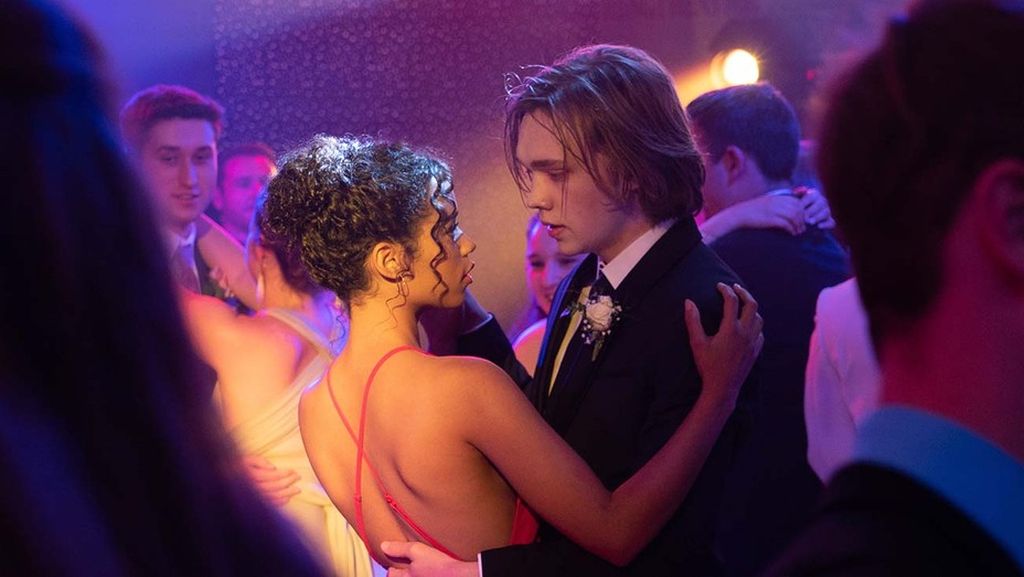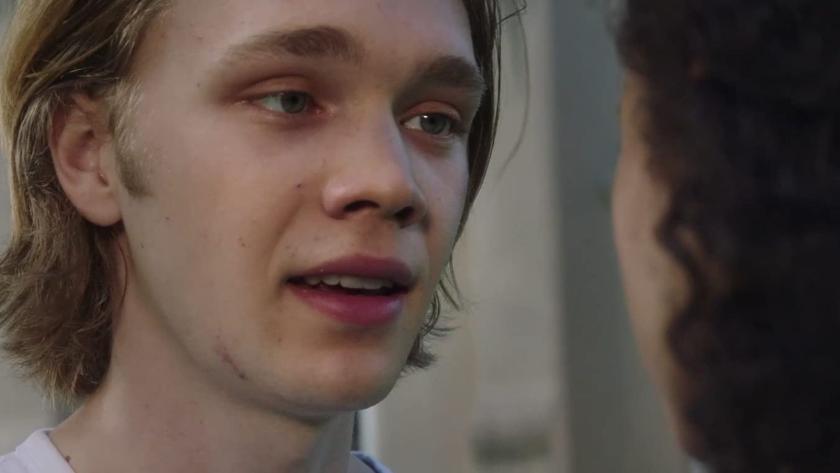Adam (Charlie Plummer) is being tested for glaucoma at the start of Words on Bathroom Walls, the director Thor Freudenthal's adaptation of Julia Walton's 2017 Young Adult novel. In fact, the indrawn teenager is suffering from schizophrenia and will soon embark upon a disorienting sequence of events that finds him on meds and then off again, in and out of school, experiencing bullying from a group of boys and the possibility of romance with an especially clever girl. All the while, the frequently straight-to-camera narration promises that a difficult story is not going to go all Hollywood on us (the specific example cited is Good Will Hunting), which is then precisely what the movie does. Was no one actually listening to Nick Naveda's screenplay?
The film's reluctance to honour its own statement of intent is puzzling given the evident commitment that courses through an often grievous narrative. In psychological outline, we're in Hamlet territory, with Adam marking his displeasure at every turn with the new partner, Paul (Walton Goggins), chosen by Adam's long-single mum, Beth (Molly Parker), a kind presence who begins to crack under the pressure of watching the son she loves recede from view. (The two come late in the movie to their own version of Shakespeare's closet scene.) Adam's problem, it seems, has to do with a cacophony of inner voices who tell him what to do, amplified at times by horror-movie theatrics during which the screen goes to black and Adam is taken over by a personality disorder that he can't control.
 Schizophrenia is a terrifying illness, and the movie never really gets to grips with its dubious decision to bring Adam's inner perturbations to life in the anthropomorphised and distressingly glib form of a savage-seeming bodyguard, a horndog best mate, and a vaporous woman who swirls in and out of view. Their collective presence seems as perfunctory as the visits made by Charlie to a priest (played by Andy Garcia, no less), who proves a useful part of the territory once Adam switches to a Catholic school that, with luck, won't discover the existence of his demons.
Schizophrenia is a terrifying illness, and the movie never really gets to grips with its dubious decision to bring Adam's inner perturbations to life in the anthropomorphised and distressingly glib form of a savage-seeming bodyguard, a horndog best mate, and a vaporous woman who swirls in and out of view. Their collective presence seems as perfunctory as the visits made by Charlie to a priest (played by Andy Garcia, no less), who proves a useful part of the territory once Adam switches to a Catholic school that, with luck, won't discover the existence of his demons.
That fresh academic start brings with it a budding girlfriend in the form of the clever and deeply woke Maya (a charming Taylor Russell, pictured with Plummer above), who rejects the notion of prom night as "an extension of the patriarchy" but is soon accompanying Adam to a high school ritual that, as one might expect, can only end in tears. The film has some while to go still from that unfortunate evening and manages to wend a too-convenient path toward a hug-filled ending complete with a direct appeal to the spectator to acknowledge the pain of the illness at hand. One only wishes the psychic toll exacted by schizophrenia wasn't held up by way of example next to cancer, as if the two existed in some bizarre competition. The implicit comparison leaves a sour aftertaste.
That said, it's a clever conceit to make Adam a budding star chef, who cooks on instinct and knows his way around a chopping board: small wonder he doesn't like it when Paul, in a gesture intended only to help, hides Adam's knives. "I have an illness but I'm not the illness itself," notes Adam in a scripted thud that the gifted Plummer, who manages to be soulful and blank-eyed as required, fields with ease. "You need to believe in yourself," Adam is advised in the sort of takeaway bromide that comes with such material. If only the film had believed in itself a tiny bit more, we'd be in the realm of the truly haunting and not just a Hallmark Card.















Add comment